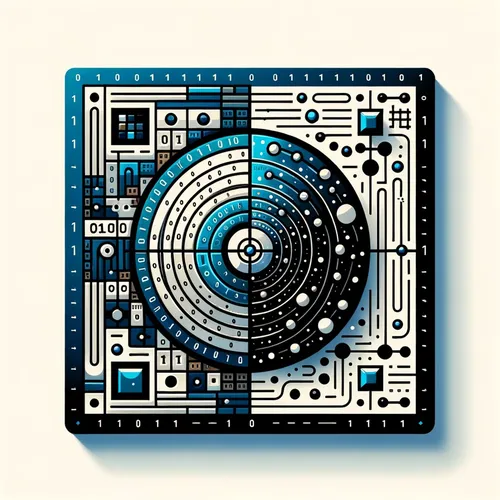Guppy: Quantum Computing's Jazzy New Language Unleashed
- Author
- Quiet. Please
- Published
- Mon 25 Aug 2025
- Episode Link
- https://www.spreaker.com/episode/guppy-quantum-computing-s-jazzy-new-language-unleashed--67507283
This is your Quantum Bits: Beginner's Guide podcast.
Welcome back to Quantum Bits: Beginner’s Guide. I’m Leo—Learning Enhanced Operator—your quantum computing navigator. Today, I’m going to take you directly into the heart of this week’s most electrifying quantum leap: the debut of the Guppy programming language by Quantinuum. Trust me, this isn’t just another language update—it’s a paradigm shift in how we, as quantum programmers, will interact with tomorrow’s machines.
Picture the quantum lab on the day of the announcement—screens flickering with quantum circuits, coffee-crazed researchers eager to break a new programming barrier. Guppy, embedded natively in Python, didn’t just promise accessibility—it delivered the power to exploit quantum computers’ full weirdness with the safety and clarity programmers crave. Unlike the rigid, hardware-locked frameworks of yesteryear, Guppy lets us script advanced quantum error correction routines, dynamic measurement-based algorithms, and even magic state distillation—all within a familiar syntax. It’s the equivalent of teaching a symphony orchestra to improvise jazz.
But why does this matter so much right now? This week, IBM revealed that software, not hardware, is racing ahead—a five-qubit system armed with clever error mitigation outperformed a 156-qubit goliath on a real-world chemistry problem. It's underscored for the world that the real bottleneck isn’t just more qubits, but *quality*: noise suppression, error correction, and programming flexibility. Guppy’s modular approach means you can implement such protocols with fewer headaches, and its compile-time safety helps catch mistakes before you’re deep into an execution that might last hours.
Inside the quantum processor—imagine a shimmering lattice of ions, each manipulated by precisely tuned lasers. With Guppy and companion emulators like Selene, you can run experiments that adapt in real time: the algorithm changes depending on the outcome of a quantum measurement. This is like playing a chess match where each move rewrites the rulebook; only now, the rule-changing is automatic, guided by the stochastic, probabilistic heart of the quantum realm.
The big picture is breathtaking: accessibility. Tools like Guppy, together with advances in cloud-style quantum virtualization such as Columbia Engineering’s HyperQ, mean more researchers and students can harness quantum devices, not just those with access to million-dollar hardware. Just as electric vehicles are reshaping streets post-policy summits in Tokyo or Paris this week, quantum software breakthroughs are paving new digital avenues.
We stand on the threshold of truly useful, widely available quantum computing—and at the threshold, it's software that opens the door. Guppy’s emergence is a clear signal: programming quantum computers is about to get a whole lot easier.
If you have questions about Guppy or the latest in quantum programming—or want to suggest a topic—email me anytime at [email protected]. Don’t forget to subscribe to Quantum Bits: Beginner’s Guide. This has been a Quiet Please Production; for more, visit quiet please dot AI. Thanks for listening.
For more http://www.quietplease.ai
Get the best deals https://amzn.to/3ODvOta
